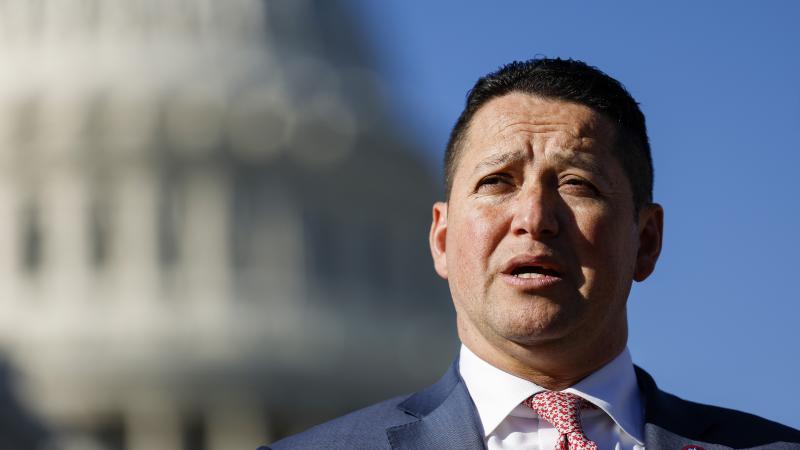U.S. prosecuted criminal COVID fraud cases totaling $2 billion in losses, DOJ report says
While only a fraction of the $280 billion in estimated fraud losses, the report shows that the effects of the massive coronavirus relief bills are still being dealt with.
The new 2024 annual report from the COVID-19 Fraud Enforcement Task Force summarizes law enforcement efforts to combat pandemic-era fraud, providing further evidence of long held concerns about how the roughly $5 trillion total pandemic relief was exploited by bad actors. Two years ago, The New York Times published an interactive chart showing what industry sectors received the funds.
Yet, this marks only a small fraction of the estimated fraud stemming from COVID-19 relief. For example, an Associated Press investigation estimated $280 billion in relief funds were stolen by fraudsters.
Published by the Department of Justice on Tuesday, the report summarizes the efforts of the task force and its partners to investigate, prosecute, and recover funds in the myriad fraud schemes that exploited the COVID-19 relief programs implemented during the pandemic, such as the Paycheck Protection Program (PPP).
For example, DOJ report found $2 billion in losses associated with criminal pandemic fraud spread across 3,500 individual cases. Some of the most fantastic instances of fraud include a Florida defendant who used more than $7 million in relief funds to purchase an estate and two luxury vehicles, and a VA nurse who filed more than 220 false applications for unemployment insurance, netting herself more than $3.5 million.
“Since I established the COVID-19 Fraud Enforcement Task Force three years ago, we have charged more than 3,500 defendants, seized or forfeited over $1.4 billion in stolen COVID-19 relief funds, and filed more than 400 civil lawsuits resulting in court judgements and settlements,” said Attorney General Merrick Garland.
“Our work is not over. We will continue our efforts to investigate and prosecute pandemic relief fraud and to recover the assets that have been stolen from American taxpayers,” he added.
The report shows the members of the task force have collectively filed charges against more than 3,500 defendants in cases where COVID-19 relief funds were fraudulently obtained since the task force was formed in 2021. The DOJ estimates these combined cases represent total of $2 billion lost to fraud.
Of the 3,500 charged, the report says 2,005 defendants pleaded guilty or were convicted after trials. However, the DOJ says a “similar number” of fraud investigations are still underway that have yet to result in charges.
The investigations have also resulted $1.4 billion in “seizures and forfeiture orders to recover stolen CARES Act funds,” according to the report. The CARES Act was the first major coronavirus aid package and stimulus—totaling $2.2 trillion—that passed late in the Trump administration, in March 2020. It was the largest stimulus package in U.S. history.
But now, after the dust has settled, the relief programs implemented by the bill have been widely recognized to have been affected by fraud.
You can read the 2024 annual report below:
In one case highlighted in the report, a Florida man fraudulently secured $7.2 million in emergency funds through the Paycheck Protection Program (PPP). The man, Don V. Cisternino, applied for the program using false information about his business, claiming he had over 400 employees and more than $2.8 million in payroll expenses. Yet, in fact, Cisternino was the only employee at his company.
When the $7.2 million in relief funds were dispersed to his account, Cisternino used them to purchase a palatial estate in central Florida and two luxury cars, a Mercedes Benz and a Maserati. After fleeing the country, he was ultimately arrested with assistance from Interpol in Southern Europe. He was eventually convicted and sentenced to more than eight years in federal prison.
In another case, a nurse in Virginia working for the Veterans Affairs Administration named Heather Huffman, enlisted family and close friends in a multi-pronged conspiracy to “defraud at least five state workforce agencies,” including the Virginia Employment Commission in the state where she worked. She and her assistants sought $3.5 million in fraudulent unemployment insurance benefits by using identify theft victims, co-conspirators, and federal and state prison inmates.
“In total, Huffman and her conspirators submitted more than 220 applications in the names of more than 120 individuals to at least five different states through which they sought to receive more than $3.5 million and actually obtained more than $2 million,” a press release from the DOJ reads.
Huffman fled from the law and assumed a false identify. Eventually, authorities found her living under an alias in Kansas and she was arrested and sentenced to 18 years in prison for her role in the scheme. Three of her co-conspirators were also sentenced to between three and five years for their roles in the scheme.
Previous probes by the House Oversight Committee also highlighted the vulnerability of the federal pandemic relief system to “rampant waste, fraud, and abuse.” The Inspector General for the U.S. Department of Labor told the subcommittee on Government Operations and the Federal Workforce that massive spending from the government funneled into programs with preexisting oversight challengers increased the fraud potential.
“The unprecedented infusion of federal funds gave fraudsters a high value target to exploit. That combined with ease of identity theft and system weaknesses, previously identified by the OIG, allowed criminals to defraud the programs,” the inspector general said.
“Department of Labor recently reported an annual improper payment rate of 21.52 percent for FY ’22. When applied to the approximate 888 billion dollars in UI benefits paid during the pandemic, at least 191 billion dollars could have been paid improperly,” he added.
Given the total scale of the federal aid packages passed during the pandemic, the government’s recovery of fraudulently acquired funds has likely only scratched the surface—a fact with bipartisan recognition in Washington.
In the report, the DOJ notes that it is requesting an extension on the statute of limitations for COVID-19 fraud crimes and for adequate resources for investigations and prosecution efforts to be provided.
“While I am incredibly proud of the work of the CFETF and the significant law enforcement accomplishments, much work remains in the fight against COVID-19 fraud,” said Director Michael C. Galdo of the COVID-19 Fraud Enforcement Task Force.
“The CFETF and its member agencies have ongoing investigations into hundreds of identity thieves, transnational fraud and money laundering networks, large-dollar individual fraudsters, and the businesses that facilitated these crimes,” he added.
The COVID-19 fraud task force also concluded that it may be appropriate for “a permanent, interagency body to respond to benefits fraud.”
“The use of stolen and synthetic identities by criminal networks to defraud public benefits programs is a serious and evolving threat to the integrity of federal programs and to the American people those essential programs are intended to help,” the report concludes, citing evidence that the networks which pursued COVID-19 relief money may still be active in attack more federal and state programs.
On Tuesday, concurrent with the annual report from the DOJ, the Biden Administration and key Democratic senators announced a new legislative initiative to “crack down” on pandemic fraud.
President Biden suggests that any legislation should include “hundreds of millions of dollars for investigation and prosecution of those engaged in major or systemic pandemic fraud.” The White House notes the Democratic proposals would increase funding for the COVID-19 task force to carry out its ongoing investigations.
The House Oversight Committee, which is led by Republicans, did not respond to a request for comment on Tuesday about President Biden and the Democratic Senators’ proposal.
The Facts Inside Our Reporter's Notebook
Documents
Links
- roughly $5 trillion total
- estimated $280 billion in relief funds
- said Attorney General Merrick Garland
- totaling $2.2 trillion
- largest stimulus package
- fraudulently secured $7.2 million in emergency funds
- sentenced to more than eight years in federal prison
- âdefraud at least five state workforce agencies,â
- a press release
- sentenced to 18 years
- ârampant waste, fraud, and abuse.â
- the inspector general said
- announced a new legislative initiative















